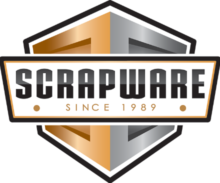The Basel Convention, an international agreement which controls transboundary movement and disposal of hazardous waste, is considering proposals which may make it more challenging for end-of-life electronics to be refurbished, reused or recycled.

Effective in 1992, the Basel Convention is a treaty signed by 53 counties designed to reduce the movements of hazardous waste between nations.
It is especially designed to prevent the transfer of hazardous waste from developed to less developed countries. It achieves this by subjecting hazardous waste to a prior consent procedure allowing recipient nations to accept or reject the shipments.
Switzerland and Ghana have recently submitted a proposal to control the transboundary movement of all end-of-life electronics, be they hazardous or non-hazardous. Currently, the Basel Convention does not regulate non-hazardous end-of-life electronics. This proposal would have a significant impact on exporters of scrap electronics who do not consider their material “waste.” While the goal of the proposal is to prevent hazardous material from being shipped to poor countries, the actual outcome of the plan would be to make it more difficult for non-hazardous devices to be sent to foreign countries to be refurbished, reused or recycled. According to Recycling Today, if the proposal is approved, all electronics whether they are hazardous or not would have to go through the prior informed consent procedure which would be administratively burdensome to exporters and even to the governments managing the requests.
Under a second proposal submitted by the European Union, there would be a new category of material, “R20-Preparing for Reuse.” This new category would include electronics that are making their way to destinations for refurbishment and reuse. These electronics would then be categorized as “waste” under the agreement.
According to Adina Renee Adler, Vice President of Advocacy for the Institute of Scrap Recycling Industries (ISRI), under these two proposals, “all electronics would be controlled, that means everything that would go to another country for purposes of repair and refurbishment would be considered waste.”
The Basel Convention proposals were discussed at the ISRI 2021 online convention. During the program “Electronics Spotlight: Emerging Issues for Electronics Recycling” presenters agreed that if end-of-life electronics are classified as waste and not products, it would be a step backward in our pursuit of a circular economy. The opportunity to extend the life of these products would be lost and the result would be more electronics ending up in landfills.
Why end-of-life treatment of electronics is important
- The useful life of many electronic devices is becoming shorter and shorter. New devices with more functionality are being released faster than ever, obsoleting existing devices. This leaves consumers with mounting piles of old gadgets they no longer use, but that might still be useful in developing countries. Refurbishing, repairing and reusing discarded electronics is an important step toward bridging the digital divide in developing countries and slowing down the flow of electronics into landfills.
- Improperly disposing of electronic devices is harmful to the environment. These devices are made up of materials such as chromium, cadmium, mercury and lead which can leach into the soil and contaminate the air and water ways if they are landfilled and not disposed of properly, according to the Environmental Protection Agency (EPA).
- Most electronic devices are nearly 100 percent recyclable. They are comprised of valuable materials such as precious metals like gold, silver, and platinum along with copper, aluminum, plastic and glass. Through the recycling process, these materials can be reclaimed and not buried in a landfill.
- Reclaiming material by recycling means there is decreased demand for new raw materials. This will help conserve important natural resources. According to the EPA, one metric ton of circuit boards contains 800 times the amount of gold mined from one metric ton of ore.
- Using recycled materials also helps reduce greenhouse gas emissions produced when manufacturing new virgin material. The more recycled material is available, the lower the demand for virgin materials.
ISRI and other industry groups have submitted comments on these proposals to the Basel Convention Secretariat. In its comments, ISRI states that refurbished electronics help bridge the digital divide in developing countries, and landfilling end-of-life electronics has negative environmental consequences. The proposal is expected to be discussed by the international group in spring of 2021.
ScrapWare Corp., of Rockville, MD, has been providing software to the scrap metal recycling industry for over 30 years. ScrapWare uses an Oracle database to provide a cloud-based software solution to manage all aspects of a recycling business. With numerous modules, extensive technical support, remote installation and online training, ScrapWare helps recycling companies with compliance, efficiency and profitability. Check out ScrapWare’s website, read the user testimonials, and see its offerings for your recycling software solution.
